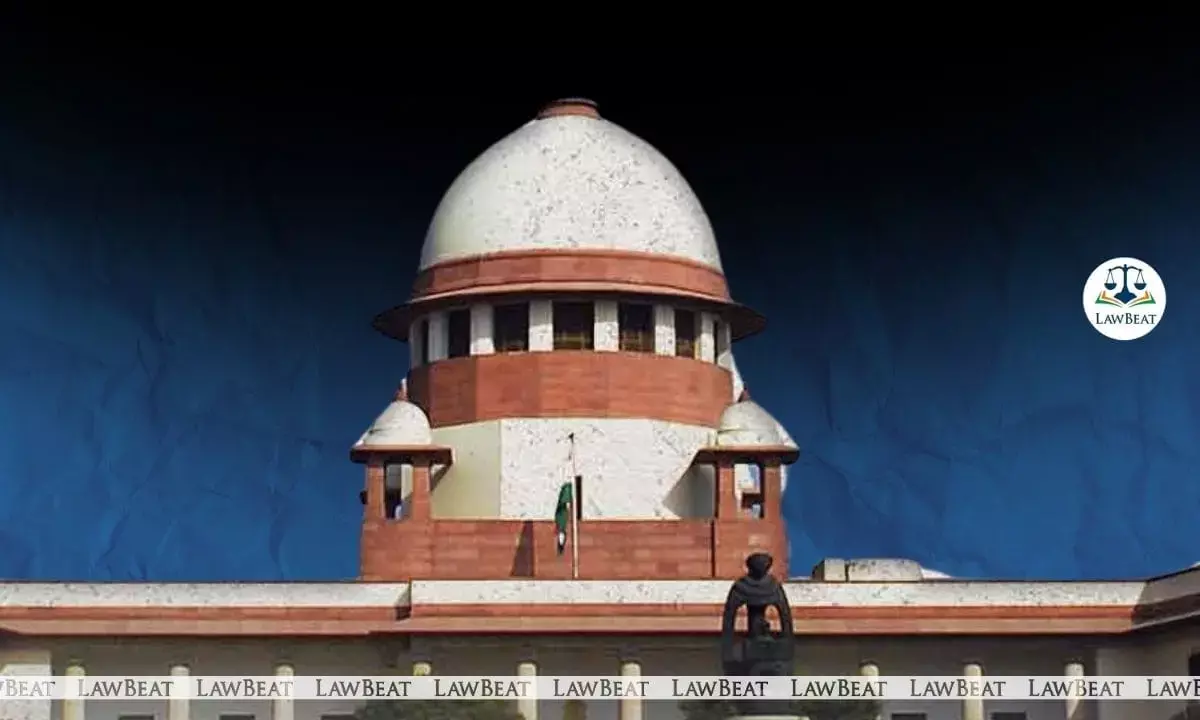Constitutional Protection from Retrospective Harsher Punishment is Absolute, Says SC While Modifying Life Sentence in POCSO Case

The Supreme Court has reiterated that the constitutional safeguard under Article 20(1) of the Constitution of India, which prohibits retrospective application of a more severe punishment than what was applicable at the time of the offence, is absolute and non-negotiable. The Court made this observation while partly allowing an appeal and modifying the sentence awarded to a man convicted under the Protection of Children from Sexual Offences (POCSO) Act for raping a five-year-old girl in 2019.
A bench comprising Justices Vikram Nath and Sandeep Mehta held that the Trial Court had erred in sentencing the appellant to imprisonment for the remainder of his natural life, a punishment introduced only after the date of the incident. The Court ruled that such retrospective application of a harsher sentence violated the express mandate of Article 20(1).
“This is clearly violative of the bar contained in Article 20(1) of the Constitution of India,” the bench observed.
The constitutional provision in question, Article 20(1), states that no person shall be convicted of any offence except for the violation of a law in force at the time of the commission of the act charged as an offence, nor be subjected to a penalty greater than that which might have been inflicted under the law in force at that time.
In this case, the appellant Satauram Mandavi had challenged the judgment dated September 5, 2023, passed by the Chhattisgarh High Court. The High Court had affirmed his conviction and sentence of imprisonment for the remainder of his natural life under Section 376AB of the Indian Penal Code and Section 6 of the POCSO Act, based on a Trial Court judgment dated November 30, 2021.
The incident occurred on May 20, 2019. The FIR registered against the appellant alleged that he had lured a five-year-old girl to his house and committed rape upon her. The Trial Court recorded a clear finding of guilt and sentenced him under Section 6 of the POCSO Act to imprisonment for the remainder of his natural life, along with a fine of Rs 10,000.
The High Court upheld the conviction and sentence, observing that the offence was of a grave and heinous nature and involved a very young child, which warranted no leniency.
Before the Supreme Court, the appellant’s counsel argued that while the conviction was under Section 6 of the POCSO Act, the sentence imposed was based on the 2019 amendment to the Act, which came into effect on August 16, 2019. The amendment enhanced the minimum sentence and redefined “imprisonment for life” to mean imprisonment for the remainder of the natural life.
The counsel submitted that applying this amended provision to an offence that occurred on May 20, 2019, amounted to retrospective application of a harsher penalty, which is constitutionally impermissible.
The Supreme Court accepted this submission, holding that the sentencing court had wrongly applied the amended provision. The Court pointed out that under the unamended Section 6, the maximum punishment permissible was imprisonment for life in the conventional sense, and not life imprisonment until the end of the natural life.
Since the amended provision had not come into force on the date of the offence, its application in the appellant’s case was constitutionally barred.
The State counsel opposed any modification of the sentence, asserting that the appellant did not deserve leniency in view of the brutal nature of the offence. However, the Supreme Court made it clear that the question before it was not one of leniency, but of adherence to constitutional protections.
While upholding the conviction of the appellant under Section 6 of the POCSO Act, the Court modified the sentence from life imprisonment for the remainder of natural life to life imprisonment as per the unamended law applicable on the date of the offence.
The fine of Rs 10,000 imposed by the lower court was left undisturbed.
The judgment serves as a reaffirmation of the constitutional guarantee under Article 20(1), which prohibits retroactive enhancement of criminal penalties. It also reiterates the principle that even in cases involving heinous offences, constitutional mandates must be followed strictly, especially when it concerns the fundamental rights of the accused.
Case Title: Satauram Mandavi v. The State of Chhattisgarh & Anr
Judgment Date: July 25, 2025
Bench: Justices Vikram Nath and Sandeep Mehta
